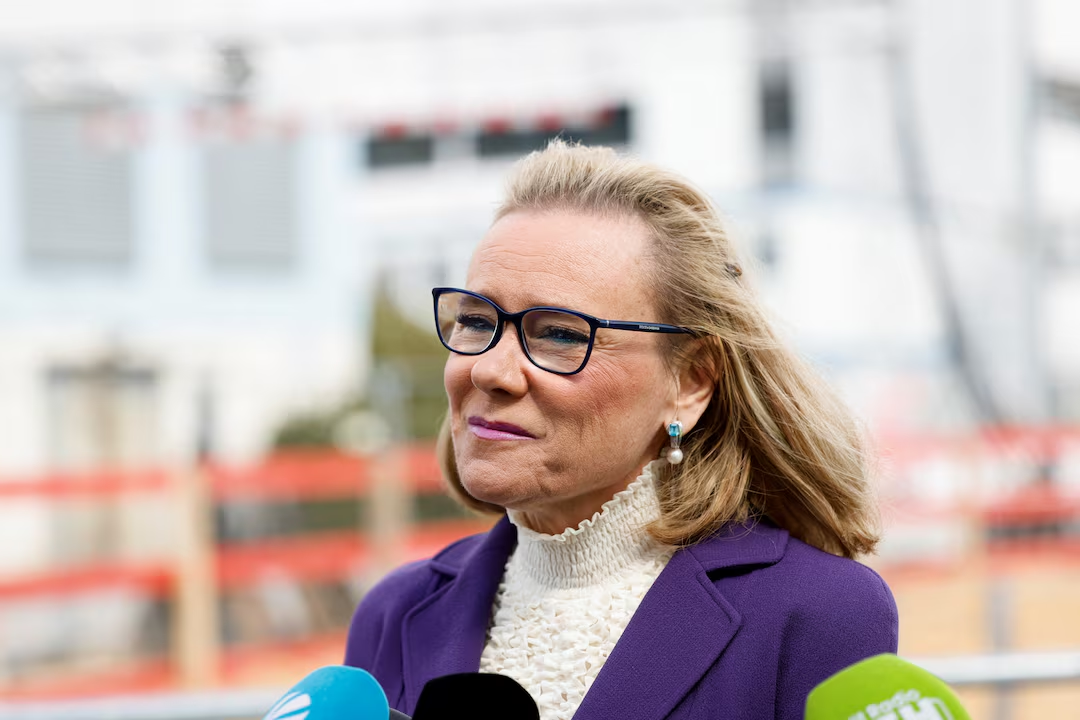Asia-Pacific Stocks Slide as Trade Tensions and Earnings Concerns Weigh on Markets

Asia-Pacific markets traded mostly lower on Wednesday, with investor sentiment dented by renewed US-China trade tensions and mixed corporate earnings from Wall Street.
In Hong Kong, the Hang Seng Index led regional losses, falling 1.91% to close at 21,056.98, snapping a six-day winning streak for Chinese stocks listed in the territory. Technology companies including Meituan, Kuaishou, and JD.com were among the hardest hit, as fears grew that expanding US trade restrictions could affect broader sectors beyond tariffs.
Mainland China’s CSI 300 Index managed to gain 0.31%, closing at 3,772.82, buoyed by stronger-than-expected GDP figures. China’s economy grew 5.4% year-on-year in the first quarter, exceeding Reuters’ forecast of 5.1%. However, analysts warned that US tariff threats could weigh heavily on future growth, with UBS revising its 2025 GDP forecast for China down to 3.4%.
Japan’s Nikkei 225 fell 1.01% to 33,920.40, while South Korea’s Kospi declined 1.21% to 2,447.43. The Kosdaq, focused on smaller-cap tech and biotech stocks, dropped 1.80% to 699.11. Australia’s S&P/ASX 200 index ended marginally lower, slipping 0.04% to 7,758.9.
The broader MSCI Asia Pacific ex-Japan index declined 1.3%, breaking a four-day rally as concerns deepened over the trajectory of US-China relations. The selloff followed Wall Street’s downturn overnight, where the Dow Jones Industrial Average dropped 0.38%, the S&P 500 dipped 0.17%, and the Nasdaq Composite edged down 0.05%.
Investor caution grew after the US imposed new licensing requirements on Nvidia and AMD’s artificial intelligence chips destined for China. Nvidia warned the move could impact $5.5 billion in sales, pushing its shares down 6% in after-hours trading. Analysts said this marks an escalation of trade friction into the technology sector, raising concerns about broader economic implications.
“The underperformance for Hong Kong stocks is driven by concerns of the US-China trade war extending beyond tariffs into non-tariff barriers, such as tech restrictions and possibly financial markets,” said Gary Tan, portfolio manager at Allspring Global Investments.
In a related development, China reportedly instructed domestic airlines to halt Boeing aircraft deliveries, further fueling speculation of deepening tit-for-tat measures. Louis Navellier of Navellier & Associates suggested the move could prompt renewed diplomatic talks, given the potential commercial impact on US industries.
Meanwhile, China announced a leadership shake-up in its trade negotiation team, appointing Li Chenggang as vice minister of commerce, replacing Wang Shouwen. The change comes as formal talks between Washington and Beijing have stalled.
In Japan, officials expressed cautious optimism ahead of high-level trade discussions in Washington. Takeshi Niinami, senior economic advisor to the prime minister, emphasized that Japan remains a key investor and creditor to the US, suggesting it has leverage in ongoing negotiations.
Elsewhere, investors looked ahead to key US economic indicators, including retail sales data and a speech by Federal Reserve Chair Jerome Powell. Analysts anticipate that March retail sales may have risen sharply, possibly influenced by consumers front-loading purchases ahead of expected tariff hikes.
Markets also continued to monitor global central bank decisions, with the Bank of Canada’s policy announcement and the UK’s inflation report for March on the radar. Easing inflation in Britain could give the Bank of England more room to adjust policy, while the Fed’s tone remains a critical signal for markets.
Gold prices rose 1.3% to a record high of $3,275 per ounce, reflecting investors’ flight to safety amid geopolitical uncertainty and mixed economic signals.









The latest news in your social feeds
Subscribe to our social media platforms to stay tuned